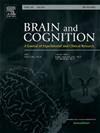The protective role of education in white matter lesions and cognitive decline
IF 1.4
3区 心理学
Q3 NEUROSCIENCES
引用次数: 0
Abstract
Cognitive reserve, often reflected by education, may protect against cognitive decline linked to brain pathology. White matter lesions (WMLs), common in aging, are associated with the progression from healthy cognitive status (HC) to mild cognitive impairment (MCI). This study explores education’s role, as a proxy for cognitive reserve, in moderating the relationship between WML burden and the HC to MCI transition. Data from the Alzheimer’s Disease Neuroimaging Initiative (ADNI) were analyzed for 153 cognitively healthy adults. Participants were divided into two groups: one (n = 85) remained cognitively healthy for at least seven years, while the other (n = 68) progressed to MCI. WML volumes were assessed using MRI scans and analyzed with linear regression models including age, sex, and an intraction term between group status and education to examine moderation effects. Both WM-hyper and WM-hypo showed a similar pattern across analyses. A significant interaction between group and education for both WML types (WM-hyper: β = -0.097, p = 0.047; WM-hypo: β = -0.070, p = 0.037) was found, suggesting that among individuals who progressed to MCI, higher education was associated with lower WML burden.This suggest that education plays a protective role against white matter pathology among individuals at risk for cognitive impairment.
教育对白质病变和认知能力下降的保护作用
认知储备,通常反映在教育中,可以防止与脑部病理有关的认知能力下降。白质病变(WMLs)在衰老中常见,与从健康认知状态(HC)到轻度认知障碍(MCI)的进展有关。本研究探讨了教育作为认知储备的代理,在调节WML负担与HC向MCI转变之间的关系中所起的作用。来自阿尔茨海默病神经影像学倡议(ADNI)的数据分析了153名认知健康的成年人。参与者被分为两组:一组(n = 85)保持认知健康至少7年,而另一组(n = 68)进展为轻度认知障碍。使用MRI扫描评估WML体积,并使用线性回归模型进行分析,包括年龄、性别和群体地位与教育之间的交互项,以检查调节效应。在整个分析中,WM-hyper和WM-hypo都显示出相似的模式。两种WML类型的组与教育之间存在显著的交互作用(WM-hyper: β = -0.097, p = 0.047;发现WM-hypo: β = -0.070, p = 0.037),表明在进展为MCI的个体中,高等教育与较低的WML负担相关。这表明,在有认知障碍风险的个体中,教育对白质病理起着保护作用。
本文章由计算机程序翻译,如有差异,请以英文原文为准。
求助全文
约1分钟内获得全文
求助全文
来源期刊

Brain and Cognition
医学-神经科学
CiteScore
4.60
自引率
0.00%
发文量
46
审稿时长
6 months
期刊介绍:
Brain and Cognition is a forum for the integration of the neurosciences and cognitive sciences. B&C publishes peer-reviewed research articles, theoretical papers, case histories that address important theoretical issues, and historical articles into the interaction between cognitive function and brain processes. The focus is on rigorous studies of an empirical or theoretical nature and which make an original contribution to our knowledge about the involvement of the nervous system in cognition. Coverage includes, but is not limited to memory, learning, emotion, perception, movement, music or praxis in relationship to brain structure or function. Published articles will typically address issues relating some aspect of cognitive function to its neurological substrates with clear theoretical import, formulating new hypotheses or refuting previously established hypotheses. Clinical papers are welcome if they raise issues of theoretical importance or concern and shed light on the interaction between brain function and cognitive function. We welcome review articles that clearly contribute a new perspective or integration, beyond summarizing the literature in the field; authors of review articles should make explicit where the contribution lies. We also welcome proposals for special issues on aspects of the relation between cognition and the structure and function of the nervous system. Such proposals can be made directly to the Editor-in-Chief from individuals interested in being guest editors for such collections.
 求助内容:
求助内容: 应助结果提醒方式:
应助结果提醒方式:


